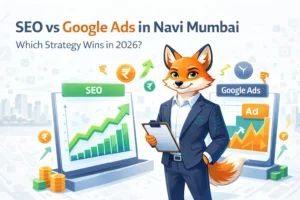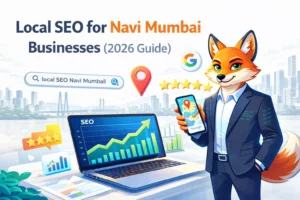Since its launch by its owner OpenAI, ChatGPT has become the talk of the world.
Its entry into the real world has made a section of people excited about its limitless possibilities in making their tasks a lot easier; and another section of people worried about its ability to spread panic; produce content that is all wrong; and more, all of which can be exploited by malicious people. Additionally, there is also the possibility of it imitating human speech in the future.
Like all new cutting-edge technologies, there will always be a cause for concern. How that will pan out in the future, only time will tell.
Meanwhile, how does SEO for ChatGPT helps?
Does it help to boost rankings? Or Can it really assist SEO?
ChatGPT (GPT means Generative Pre-Trained Transformer) is built on some aspects of the same technology as SEO.ai.
A large language model developed by OpenAi that is trained on a huge volume of text data from the Internet, it can generate human-like text; and can be used for a variety of natural language tasks. Like, from language translation to text summarization, text generation, and more.
Although, ChatGPT for SEO can generate high-quality unique SEO content relevant to specific keywords or topics, and help to improve your website’s ranking on search engines; it cannot completely replace human writing and editing. It can at the most generate content which later needs to be reviewed, edited, and optimized for SEO by a human.
Besides, it is a machine-learning model. The reliability of content it generates depends eventually on the accuracy and quality of data it is provided and trained on; and the specific fine-tuning, and parameters used.

HOW IT MAXIMIZES SEO POTENTIAL?
Here are a few indicators that tell you how SEO for ChatGPT maximizes SEO’s potential.
KEYWORD RESEARCH
Are you worried about how to identify and select the most relevant keywords for the SEO content that you’re developing for a website or blog?
If so, then stay assured that ChatGPT for SEO is there to help you.
With ChatGPT for SEO, you can
• Get a list of keywords with specific search intent. Additionally, it can also help to identify high-volume, low-competition keywords, that can help rank your website higher on SERPs.
• Get a list or relevant topics to target. This it does by analyzing data and identifying the most trending and popular topics in a particular niche industry segment.
• Classify a list of keywords in accordance with their search intent. Like, informational, Navigational, or Transactional. This it does by analyzing the purpose of and intention behind each keyword. For instance, if you ask it for a list of keywords on dietary supplements, it would classify them based on the search intent.
• Put together a list of keywords in accordance with their semantic relevance. This it does by analyzing the meaning and purpose of each keyword; and then grouping them into clusters based on their similarities.
• Translate a list of keywords into various languages. This will allow you to broaden your reach to a wider audience across the globe.
• Analyze huge volumes of data. Additionally, you can gather insights on keywords that are trending the most, as well as long-tail keywords, and related keywords.
Overall, ChatGPT for SEO helps to automate and optimize the SEO process. This will help you to gather a wide array of relevant keywords as well as topics in no time, to target.
Despite making keyword identification and generation process a lot simpler and easier, you will still need to gather more data about each keyword. Like for instance, keyword volume; SERP analysis; and ranking issues. You can gather data on all of these by leveraging SEO tools.
LINK BUILDING
Backlinks is among the major factors that search engines take into consideration when ranking websites. However, procuring and building sufficient set of high-class backlinks is a time-consuming and challenging process.
Link Building involves procurement of high-class links from other websites to your own website.
Thankfully, with ChatGPT for SEO, you can
• Identify relevant websites and blogs of high quality for link-building, easily and quickly.
• Get a list of outreach templates and email scripts for getting-in-touch with prospective link partners.
• Analyze the link profile of a website and even get ways on how to improve it.
• Create internal links that optimize a website for search engine rankings. This will help users to easily explore the website.
• Provide useful ideas for external links pertaining to a page or prompt on the website. Additionally, it can offer accurate recommendations for maximizing SEO performance; and enabling search engines to easily understand how pages link-up together.
ON-PAGE OPTIMIZATION
On-page factors like Title Tags, Meta Descriptions’, Headers, Images, and Content, can all influence your website’s ranking on search engines, significantly.
On-page optimization involves optimization of individual pages on your website to make it rank higher on Google. But it can be a time-consuming and complicated process at times.
This is where; ChatGPT for SEO can assist in on-page optimization by
• Specifying Meta Titles and Meta Descriptions that are written in a compelling way that is relevant to search engines users. Additionally, they will make your website more visible and attract more traffic to it.
• Suggesting varied ways to improve the structure of your website. Like creating a clear-cut hierarchy of pages, with the help of varied descriptive headers; and optimizing images to facilitate quicker loading times
• Suggesting ways to improve your SEO content and overall SEO performance. This it does by providing unique combinations in various ways that will attract the attention of your site’s readers.
• Generating and optimizing headings which form an important part of website structure. It can assist with generation and optimization of headings including H1, H2, and H3 tags. They will help you to organize your website content in a way that will make it easier for GOOGLE to understand the meaning of the content.
• Generating and optimizing sitemaps which help search engines to understand a website’s structure and its content. This will further help to make it easy for search engines to navigate your website; boost its visibility; and improve its chances of being indexed by search engines.
• Generating and optimizing URLs which help users’ and search engines’ to understand its context. This will improve your site’s visibility and enhance its chances of being indexed by search engines.
By helping out in the above ways and providing varied options, ChatGPT for SEO will help to drastically reduce the time and efforts spent on developing the appropriate Meta Title and Meta Description.
OPTIMIZATION OF POSTS
Developing a blog and social media post can consume oodles of time. Often, lots of time is spent on researching for relevant information related to the blog’s topic.
Thankfully, ChatGPT can
• Give useful ideas and ways based on the keywords or topic, mentioned by you.
• Give summary or overview of the blog or social media post. This it does by generating a list of related sub-topics or pointers to include in the outline of the blog or social media post.
• Generate and optimize blog and social media posts that are relevant to your business and target audience. This will help to drive traffic to your website and improve its visibility online.
• Generate and optimize press releases that are relevant to your business and target audience. This will help to improve your site’s visibility and increase its chances of being indexed by search engines.
Aside from the above, SEO for ChatGPT can also generate and optimize landing pages which form an important part of website design and user-experience; and also impact SEO. This it does by optimizing them for keywords that will help to improve your site’s search engine ranking and drive more traffic to it.
ChatGPT for SEO can also generate and optimize product/service descriptions; testimonials; and FAQs, relevant to your business and target audience.
Finally, ChatGPT can also analyze user-behavior on a website and recommend changes to enhance user-engagement.
















